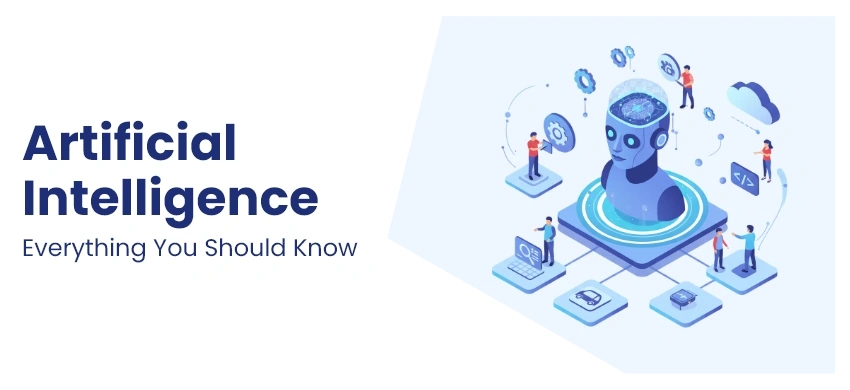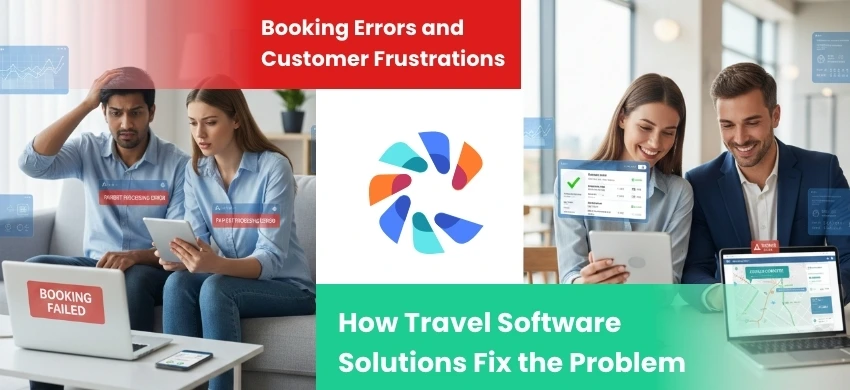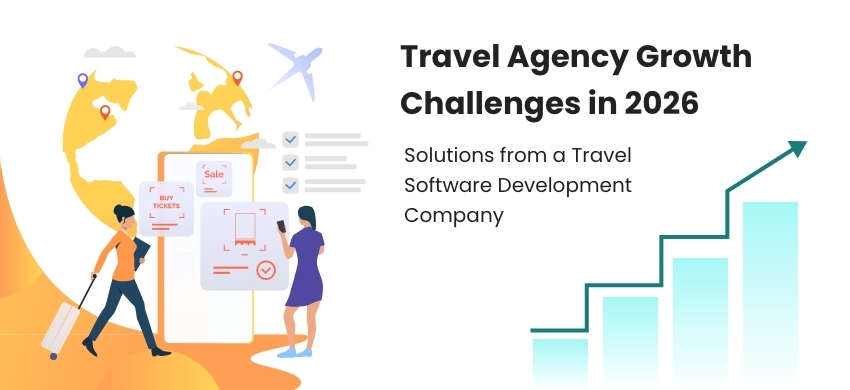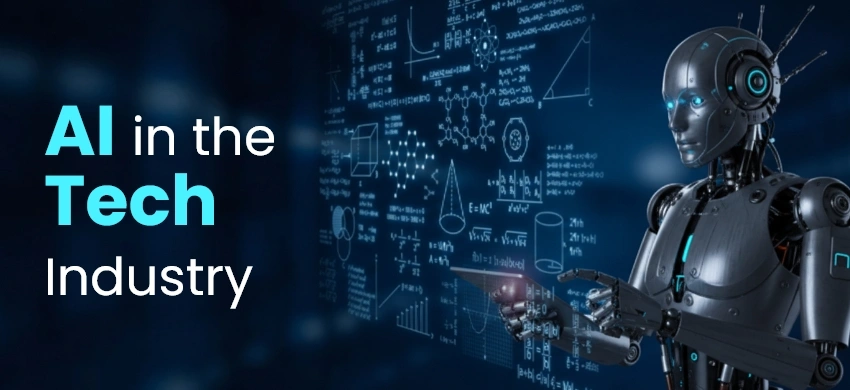
Introduction to Artificial Intelligence in 2025
Artificial Intelligence has become a core part of modern business and technology. In 2025 AI is more advanced, more accessible and more capable of transforming industries than ever before. Companies across every sector are adopting AI to automate tasks, improve decision making, optimize workflows and create intelligent digital products. The growth of generative AI, large language models, AI agents and autonomous systems has changed how organizations operate and innovate.
AI in 2025 is no longer limited to research labs or big enterprises. Small and medium businesses are now integrating AI into mobile apps, websites, enterprise systems and customer service platforms. With the support of Artificial Intelligence App Development Services and advanced AI consulting solutions, businesses can now build custom intelligent applications that boost productivity and drive revenue.
This guide explains everything you need to know about artificial intelligence in 2025, including trends, technologies, business applications, benefits, challenges, future predictions, and how to implement AI successfully.
How Artificial Intelligence Works
To understand the power of AI in 2025 it is important to know how it works behind the scenes. AI systems function using advanced models that analyze patterns, learn from data and make predictions or decisions. The core components of AI include:
Machine Learning
Machine learning allows computers to learn from data and improve automatically. These models identify patterns and generate insights without manual programming.
Deep Learning
Deep learning uses neural networks inspired by the human brain. These models handle complex tasks such as image recognition, voice processing, recommendations and automation.
Natural Language Processing
NLP helps machines understand and respond to human language. Modern NLP models enable chatbots, virtual assistants, automated support and content generation.
Computer Vision
Computer vision allows AI to analyze images and video. This technology is used in manufacturing, healthcare, security and retail.
Generative AI
Generative AI creates new content including text, images, code, video and audio. In 2025 generative AI is deeply integrated into business operations.
AI Agents
AI agents are autonomous digital systems that can perform tasks, make decisions and learn from interactions without constant human control.
These technologies work together to power modern AI applications for businesses of all sizes.
Key AI Technologies Shaping 2025
The year 2025 is marked by the rise of advanced AI technologies that help businesses operate smarter and faster.
Generative AI
Generative AI helps companies create content, automate marketing and build personalized user experiences.
Large Language Models
LLMs support chatbots, business automation systems, text processing and internal knowledge tools.
AI Agents
AI agents can independently complete tasks such as data entry, report generation, customer support and workflow automation.
Edge AI
Edge AI processes data locally on devices instead of cloud servers. This improves speed and privacy in manufacturing, IoT and healthcare.
Autonomous Robotics
Factories and warehouses increasingly use robots guided by AI to enhance speed, accuracy and safety.
Predictive AI
Predictive analytics helps businesses make smarter decisions based on future forecasts.
Vision AI
Used for facial recognition, defect detection, product analysis and safety monitoring.
All these technologies shape the future of digital transformation in 2025.
Types of Artificial Intelligence Used in 2025
AI is classified into several types based on its capabilities and complexity.
Narrow AI
Designed for specific tasks. Most AI in 2025 falls into this category.
General AI Concept
AI that can understand and think like humans. This does not fully exist yet.
Reactive AI
Responds only to current data without memory.
Limited Memory AI
Stores data and learns from past interactions. Used in self driving systems, business analytics and customer support.
Autonomous AI Concepts
AI agents and decision making systems that operate independently.
Artificial Intelligence Trends to Watch in 2025
AI in 2025 is defined by several major trends that shape the global technology landscape.
Rise of AI Agents
AI agents now automate workflows, manage tasks and act like digital employees.
Enterprise Automation
Companies automate HR processes, finance, support, supply chain and operations.
AI Powered Personalization
AI creates hyper personalized recommendations, product suggestions and marketing messages.
Human and AI Collaboration
Teams use AI as a powerful partner to speed up tasks and improve quality.
AI Governance and Ethical Standards
Governments and organizations focus on transparency, data safety and ethical AI use.
Multimodal AI
AI models process text, image, video and voice together.
AI driven creativity
AI assists in design, content creation, music, advertising and branding.
AI in 2025 is more advanced, more responsible and more business focused.
Business Applications of AI in 2025
AI plays a major role in improving business performance across different departments.
Customer Service
AI chatbots and AI agents improve response speed, automate FAQs and assist human support teams.
Marketing
AI generates content, targets audiences, analyzes campaign performance and builds personalized user journeys.
Sales
AI helps with lead scoring, customer predictions and revenue forecasting.
Human Resources
AI automates candidate screening, onboarding, performance analysis and employee support.
Finance
AI detects fraud, automates payments, manages accounts and improves forecasting.
Operations
AI optimizes supply chain, inventory, logistics and workflow automation.
Software Development
AI assists in coding, testing, bug detection and deployment.
AI Use Cases for Key Industries
Healthcare
Diagnosis assistance
Medical imaging
Drug discovery
Patient engagement
Manufacturing
Predictive maintenance
Quality control
Robotics automation
Smart factory management
Retail
Personalized shopping
Inventory forecasting
Customer analytics
Automated checkout
Education
AI tutoring
Adaptive learning
Administrative automation
Finance and Banking
Risk management
Fraud prevention
Automated financial advising
Real Estate
Property prediction
Automated customer communication
Virtual viewings
Travel and Hospitality
AI based booking
Customer personalization
Dynamic pricing strategies
Each industry benefits from AI differently based on its challenges and goals.
Benefits of Artificial Intelligence for Companies
AI delivers powerful benefits that transform how businesses operate.
Improved efficiency
Reduced operational cost
Smarter decision making
Better customer experience
Higher productivity
Accurate data driven insights
Faster execution of repetitive tasks
Competitive advantage in a crowded market
With the help of an Artificial Intelligence Software Development Company businesses can scale AI adoption quickly and efficiently.
AI Agents and Autonomous Systems in 2025
AI agents are one of the most significant advancements in 2025. These autonomous digital assistants can perform tasks without constant human oversight.
Examples include:
Customer support agents
Data extraction agents
Email management agents
Research agents
Automation agents
Businesses partner with an Enterprise AI Development Company to build and integrate AI agents into their operations.
Challenges of Artificial Intelligence
Adopting AI also brings certain challenges.
Data privacy concerns
AI biases
Integration issues
High quality data requirement
Skill shortage
Model accuracy concerns
These challenges can be addressed through AI consulting and AI Model Maintenance and Support Services that ensure consistent performance and compliance.
Future Predictions for AI Beyond 2025
AI will continue to expand across industries. Major predictions include:
More autonomous businesses
Expanding AI agent ecosystems
AI enhanced workforce collaboration
Universal adoption in small businesses
Fully automated factories
More advanced personalization
Growth of AI governance
Safer and more transparent AI models
AI will become as common as the internet in everyday operations.
How Businesses Can Implement AI Successfully
To adopt AI the right way, companies should follow a strategic approach.
Data preparation
Goal setting
Selecting AI use cases
Choosing the right AI tools
Building and testing AI models
Integrating AI into existing systems
Monitoring and optimizing outcomes
This process becomes easier when partnering with an experienced AI consultant or Artificial Intelligence App Development Services provider.
Role of AI Consulting and Development Services
AI consulting helps companies plan, build and integrate AI solutions tailored to their business needs. Working with experts ensures:
Faster deployment
Lower risk
Better accuracy
Custom AI models
Smooth integration with business workflow
Businesses often collaborate with an Enterprise AI Development Company or a professional Artificial Intelligence Software Development Company to build high quality AI systems.
Conclusion
Artificial Intelligence in 2025 is transforming how businesses innovate, serve customers and operate internally. With rapid advancements in generative AI, AI agents, automation and predictive analytics, AI is now a necessity for every organization that wants to stay competitive and future ready. Whether you run a startup or an enterprise, adopting AI can significantly increase efficiency and unlock new growth opportunities.
Codemech Solutions helps companies build powerful and scalable AI systems tailored to their goals. From artificial intelligence app development services to custom AI integrations and ongoing AI model support, our team delivers solutions that improve efficiency and drive growth. Contact us today to start your AI transformation with trusted experts.





